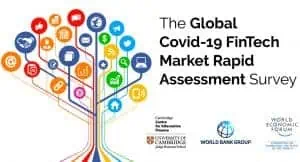Uncategorized
We’re experiencing meaningfully greater ranges of fundraising and funding exercise than the identical time final 12 months
Seedrs is a high UK based mostly funding crowdfunding platform that’s energetic in each the UK and continental Europe. Launched in 2012, Seedrs is a trailblazer in on-line capital formation for early-stage ventures. Since inception, Seedrs has booked over 1100 funded offers recording about £950 million in funding whereas internet hosting probably the most strong market for secondary transactions for crowdfunded securities. Many well-known tech-names have utilized the platform to lift progress capital whereas enlisting a wider viewers of traders that will change into unofficial model ambassadors. Revolut, one of many high UK based mostly digital banks, has crowdfunded on Seedrs.
When COVID dropped the world into a worldwide pandemic, like nearly all companies, Seedrs was impacted. But out of the shattering financial decline, Seedrs, like another on-line funding platforms, has tailored and in lots of respects thrived. Seedrs rapidly embraced the Future Fund schemed crafted by HM Treasury to assist assist startups and early-stage ventures that didn’t qualify for mortgage based mostly Coronavirus assist applications. Within the weeks because the Future Fund turned actionable, Seedrs has helped dozens of early-stage corporations to make the most of the federal government program to lift matching funds in a convertible safety providing. Seedrs might be probably the most energetic digital platform leveraging the Future Fund.
Seedrs co-founder Jeff Lynn was Seedrs longtime CEO till passing the baton over to Jeff Kelisky and getting into the function as Chairman of the agency. As Chairman, Lynn has remained a staunch advocate of Seedrs’ mission to recreate early-stage funding Not too long ago, Crowdfund Insider queried Lynn about Seedrs efficiency in the course of the COVID pandemic. Our dialog is beneath.
In Could, Kirsty Grant did a video convention the place she mentioned earlier within the Spring because the influence of COVID had set in, Seedrs noticed a dramatic decline in funding exercise. Is that correct?
 Jeff Lynn: When the enormity of Covid-19 hit in mid-March, we did see an preliminary lower within the variety of entrepreneurs going ahead with their campaigns, and in flip funding ranges went down an excellent bit. However, as everybody settled into the brand new momentary actuality, we noticed a pointy uptick again to regular ranges within the following weeks.
Jeff Lynn: When the enormity of Covid-19 hit in mid-March, we did see an preliminary lower within the variety of entrepreneurs going ahead with their campaigns, and in flip funding ranges went down an excellent bit. However, as everybody settled into the brand new momentary actuality, we noticed a pointy uptick again to regular ranges within the following weeks.
However then, issues regained their momentum in April. Is that correct?
Jeff Lynn: Sure, that’s correct, and really Q2 and Q3 (to date) have seen meaningfully greater ranges of fundraising and funding exercise than the identical time final 12 months. That’s to not say there isn’t a influence: the distribution of campaigns is shifting considerably, as these companies which might be in sectors which might be much less affected by (or that even could profit from) the disaster are those more than likely to go ahead and entice funding, whereas exercise is a bit quieter in sectors most negatively affected by the disaster. However on stability, we’re seeing sturdy funding and funding ranges and are optimistic that it’s going to keep that method.
How has Seedrs exercise held up from Could via to July?
Jeff Lynn: In Could, we celebrated hitting 1,000 offers funded on the platform and noticed our strongest ever Secondary Market – surpassing £1m value of shares traded in a month for the primary time. Since then actions ranges have remained sturdy and we’ve launched just a few new initiatives – comparable to our new partnership with Insurtech UK and the addition of a brand new variable pricing function to the Seedrs Secondary Market.
How has Seedrs tailored to the brand new atmosphere of social distancing and distant work?
Jeff Lynn: As a digital enterprise, we’re very lucky that we’re capable of work remotely, and that we will proceed to offer the identical stage of service to our entrepreneurs and traders as we may after we have been within the workplace. That being mentioned, I feel the entire staff misses attending to work collectively in individual, and appears ahead to being again within the workplace ultimately.
Do you anticipate that a few of these adjustments will stick long run?
Jeff Lynn: Like many companies, we’re having a dialog with our staff about the way to mix the advantages of working from house, which we’ve all skilled over the previous couple of months, with the worth that comes from being within the workplace. I don’t know the place that may land in the long term, however it might not shock me if we see a basic shift within the working world — at the least amongst digital companies — to 1 wherein most individuals work within the workplace just a few days every week and at house the opposite days.
Seedrs rapidly moved to checklist issuers underneath the Future Fund scheme. What number of issuers have participated on this program? How is it figuring out to date?
Jeff Lynn: It’s been nice. The Future Fund is a vital initiative that has helped to unlock personal capital throughout a time when it may need frozen up, whereas on the identical time offering extra authorities funding in an effort to prolong runways and assist companies navigate (and in some instances proceed to develop) via this disaster. To this point we’ve had 26 Future Fund campaigns, and there are extra to come back. We’re more than happy to have the ability to play a component on this highly effective and strange funding alternative.
Only in the near past, variable pricing was introduced for Seedrs Secondary Market – a major change. How is your market progressing? A fast look shows lots of inexperienced (greater values).
Jeff Lynn: We’re thrilled with the continued progress of the Seedrs Secondary Market. It is among the pillars of our well-publicised efforts to maneuver past crowdfunding and towards changing into a full-scale market for personal capital. And the introduction of a primary type of variable pricing, which launched this month, is a key a part of the Secondary Market’s evolution. We gained’t know the precise influence on numbers till after this month’s buying and selling cycle closes, however simply based mostly on remark it seems to be like there was a major takeup of the chance to supply shares at a premium or low cost.
What about extra institutional cash flowing into the platform. Do you anticipate larger offers within the close to time period?
Jeff Lynn: Just like the Seedrs Secondary Market, our efforts round institutional capital are one other pillar of changing into a real market for personal capital, however they’re a long-term one. We’ve got laid a lot of the groundwork with issues like our pilot EIS 100 Fund and our Anchor Investor Service, and we’ll proceed to develop these and different initiatives that concentrate on institutional and quasi-institutional traders. However that is in all probability one space that has been affected a bit by Covid-19: whereas retail funding has stayed sturdy, many institutional traders are going to stay to the fundamentals throughout this era, so the possibility to actually develop this facet of the enterprise in all probability emerges after the disaster is over.
 This interview is a part of an ongoing sequence wanting on the evolution of the Fintech trade with specific reference to the altering panorama in mild of Covid-19.
This interview is a part of an ongoing sequence wanting on the evolution of the Fintech trade with specific reference to the altering panorama in mild of Covid-19.
The sequence has been initiated in assist of The International Covid-19 Fintech Fast Evaluation Survey being carried out by the Cambridge Centre for Various Finance on the College of Cambridge Decide Enterprise College, in partnership with the World Financial institution and the World Financial Discussion board. The empirical information collected might be used to grasp the pandemic’s influence on the FinTech markets, how the worldwide Fintech trade has responded and among the fast regulatory and coverage implications. Crowdfund Insider is proud to be a analysis accomplice for the survey.
